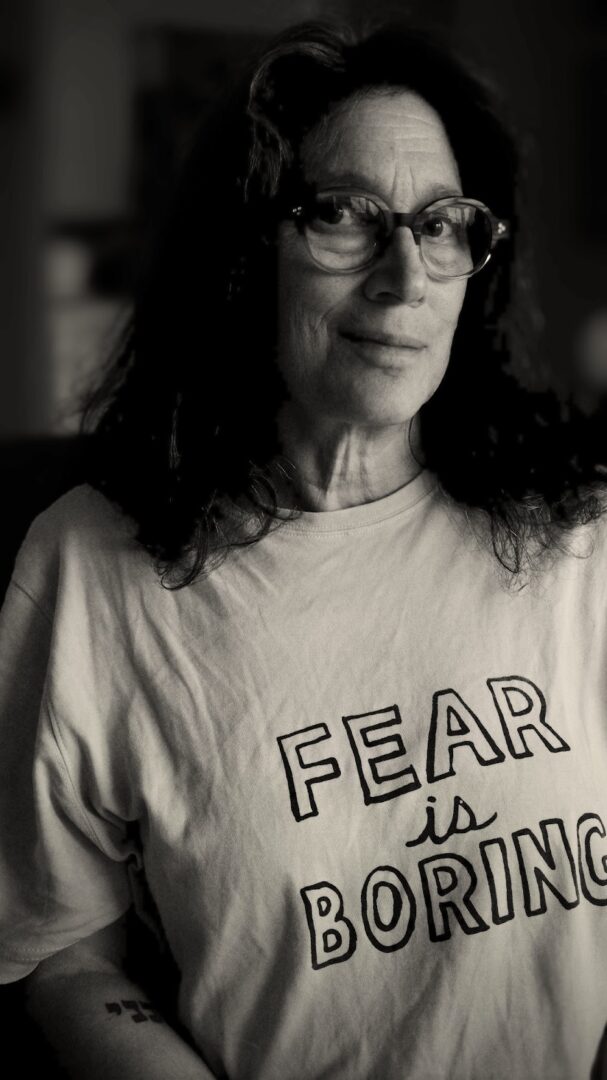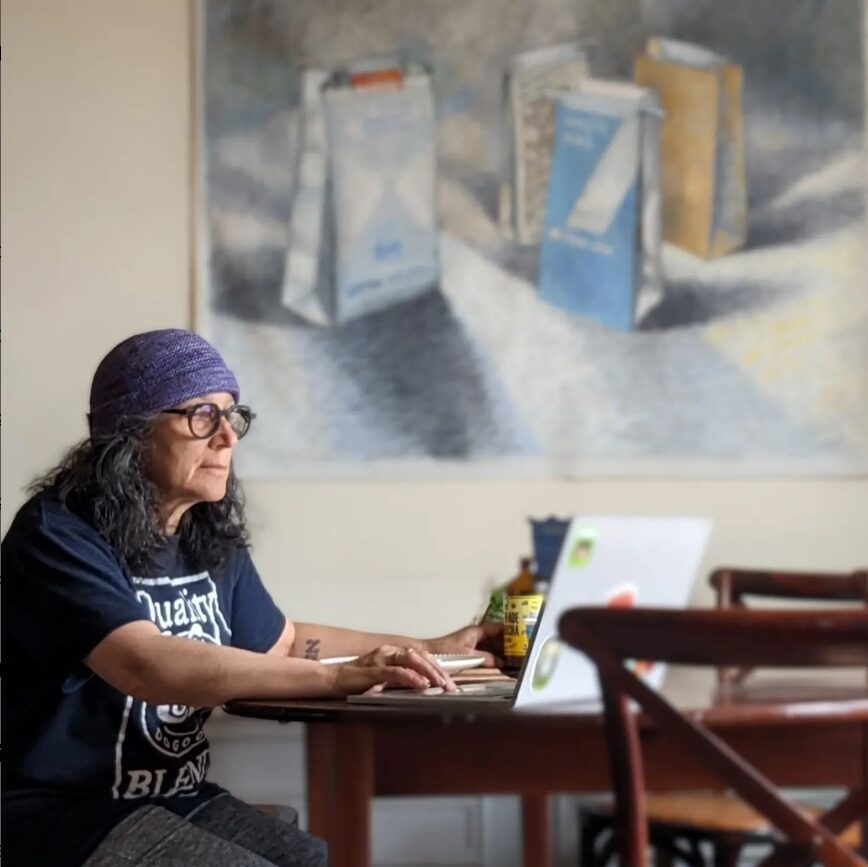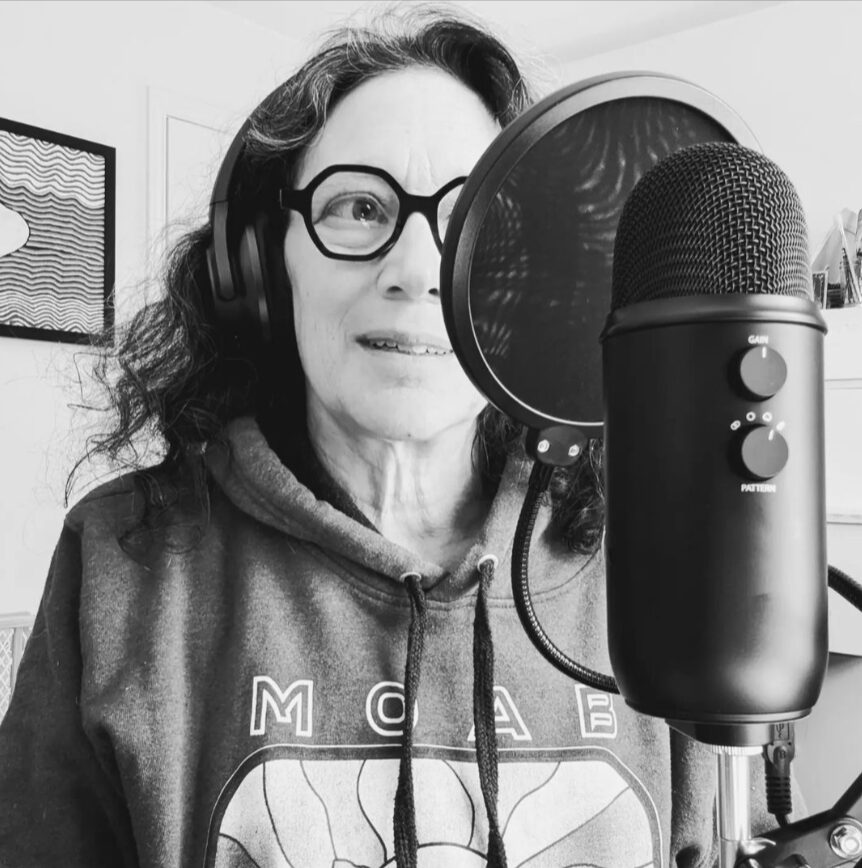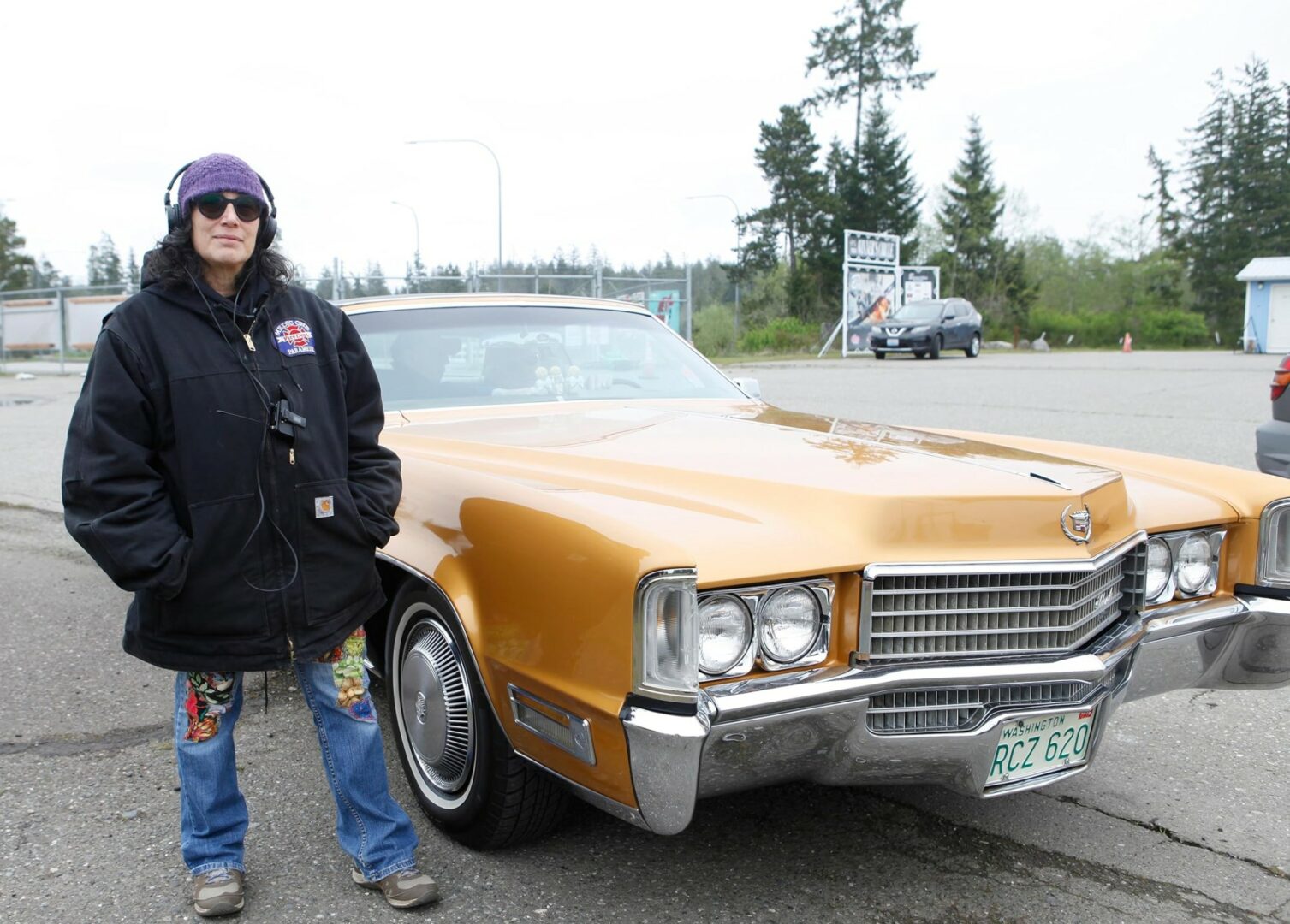We were lucky to catch up with Pam Mandel recently and have shared our conversation below.
Hi Pam, thank you so much for agreeing to open up about a sensitive and personal topic like being fired or laid-off. Unfortunately, there has been a rise in layoffs recently and so your insight and experience with overcoming being let go is relevant to so many in the community.
My latest creative project is a direct result of getting fired. I had never been fired before — laid off, sure, but not fired — and I found the whole experience wildly destabilizing. It took me a hot minute to take on that it wasn’t my fault. That’s because there’s the shock of it, this realization that overnight, your income has just disappeared. I sat on the couch and pet my dog for a couple of hours, a bit dizzy from the whole thing, but I surprised even myself with how quickly I snapped into focus.
“Hold on a sec,” I thought, “This is absolutely not on me. I bet this happens all the time, and because we’re so used to thinking it’s our fault, we’re super ashamed about it. I’m not doing that.”
I got in touch with a producer friend, the remarkable Amy Guth, and asked her if she wanted to do a thing. She’s a “Hell yeah” kind of person and we got to work launching our podcast — CANNED: Conversations about getting fired.
It’s exactly what it sounds like. I collect stories from people who have been fired. Amy does the production work. It’s been downright medicinal. It can happen that someone’s fired for cause. They’re drinking on the clock, they’re stealing, they’re involved in unethical or illegal behavior. Or they’re just really bad at their job. It happens. But so many folks are fired for not smiling, That sounds hyperbolic, but it’s true more often than you’d think. Smile when that client treats you badly. Smile when you’re told to do work don’t know how to do. Smile when you’re having health or personal struggles. Smile when you see the flaws in the business plan.
Hearing all these stories taught me that I’m not alone and underscored that it’s not my fault. The project also gave me something to work on, something that was deeply personal and satisfying while I was figuring out what to do next.

Thanks for sharing that. So, before we get any further into our conversation, can you tell our readers a bit about yourself and what you’re working on?
I have spent my entire adult life focused on some kind of creative pursuit. Writing — or the more lofty notion of story — has often been at the center.
I’ve achieved a modest degree of success at nearly everything I’ve turned to. I was a working visual artist for many years, I still sell a piece from time to time. I was in a band for about seven years and during lean times, bough groceries with gig money. I was a very early adopter of blogging and social media and have a blog (nerdseyeview.com) that’s decades old. During what I think of as the peak blogging years, my blog launched me on a lot of epic adventures. One year I was above the Arctic Circle in the fall and in Antarctica six months later. I published a travel memoir — The Same River Twice — in 2020 and wrote the screenplay to an award winning short film — Elvis of the Yukon — a few years later. The film has a nice stack of indy awards.
Right now, I’m working on CANNED and relaunching a Jewish oral history program here in Washington State. I jump media all the time. And right now it seems I’m working in audio storytelling, but there’s always a creative thread running through my work.

If you had to pick three qualities that are most important to develop, which three would you say matter most?
I am — chronologically, at least — an adult now. Every now and then some fellow adult will randomly tell me that their kid is off to art school (in whatever medium) and they are so worried about what that will mean for their future. The last time I had this conversation it was with my boss. I was the only technical writer in her team, She was fretting about one of her kids going off to art school and I got to say, “Ya know, I went to art school and I work for you.”
Do not let your desire to pursue the creative be quashed by naysayers who think it won’t serve you when you’re trying to make a living. That is incorrect. I am continually grateful for how art school taught me to approach the blank page. Artists literally spin abstract ideas into objects, whatever those objects are. We deride creative education as a society all the time while publishing reams of job openings that supposedly praise creative thinkers. Artists excel in creative thinking.
And. Do not give away your fire to your employer. It can be really hard to carve out a living as an artist, most of us have to find another way to pay the bills. But if you give away your fire, you will have nothing left for your own work. Protect that spark, feed it, do not smother it under the noise of the day to day. This is not easy, but it is essential.

Awesome, really appreciate you opening up with us today and before we close maybe you can share a book recommendation with us. Has there been a book that’s been impactful in your growth and development?
There’s a collection of Russian short stories deconstructed by the writer George Saunders — it’s called A Swim in a Pond in the Rain. There’s a particular section in there where Saunders talks about specificity of language. I think about this all the time, it doesn’t matter what I’m working on. I trained a group of new technical writers and I recommended this book. I mentioned it in my new role running the oral history program. Here’s the thing — language is how we communicate and it is essential we use words that are specific to the message we are trying to get across. It seems a reach to go back to writers like Tolstoy and Chekov to discuss technical documentation, but Saunders’ notion of specificity applies to all kinds of work, all kinds of expression.
I also want to mention a web resource called Your Logical Fallacy Is. Sometimes I’m grappling with an issue and I can’t figure out what’s bugging me about it. It’s often bad logic or bias (they cover bias too). I’m sure I’m quite insufferable with this tool in my arsenal, people don’t love it when you’re all, “Sure, but isn’t that appeal to emotion,” (or whatever applies). They don’t love being called biased or illogical, so maybe figure out how to communicate that more gently than I might. But it really helps me name the problem, and that helps me solve it.
Contact Info:
- Website: https://cannedpodcast.com/
- Instagram: https://www.instagram.com/nerdseyeview/
- Linkedin: https://www.linkedin.com/in/pammandel/
- Other: Personal blog: https://www.nerdseyeview.com

Image Credits
Lead photo courtesy of Mike Hipple.
All others by Pam Mandel
so if you or someone you know deserves recognition please let us know here.




